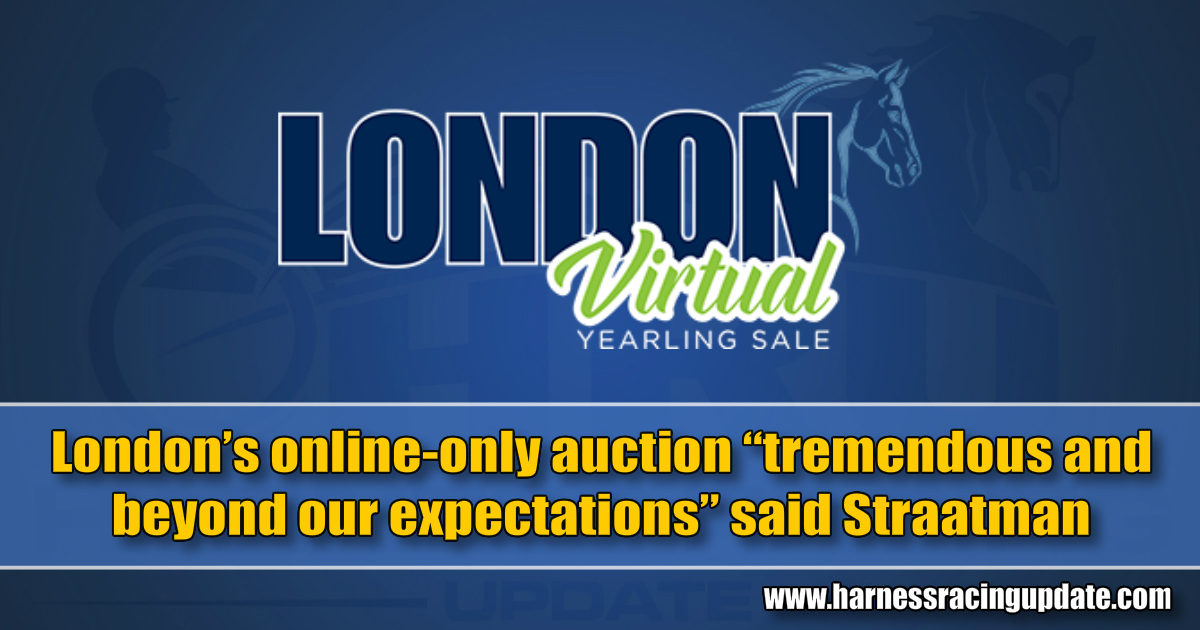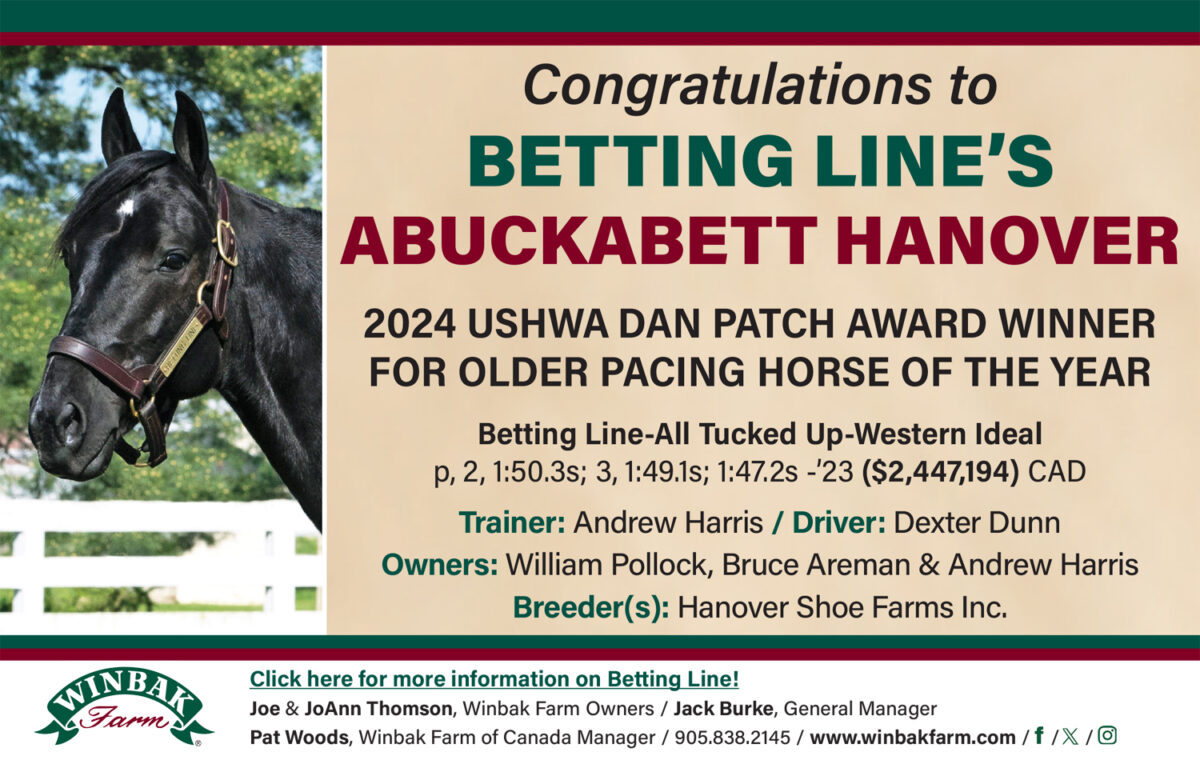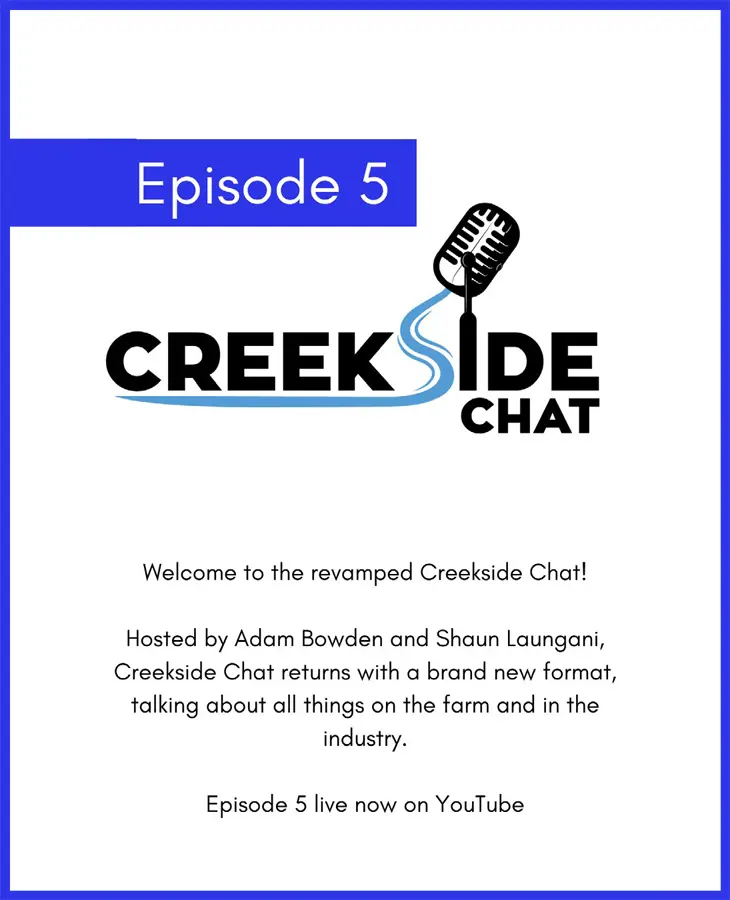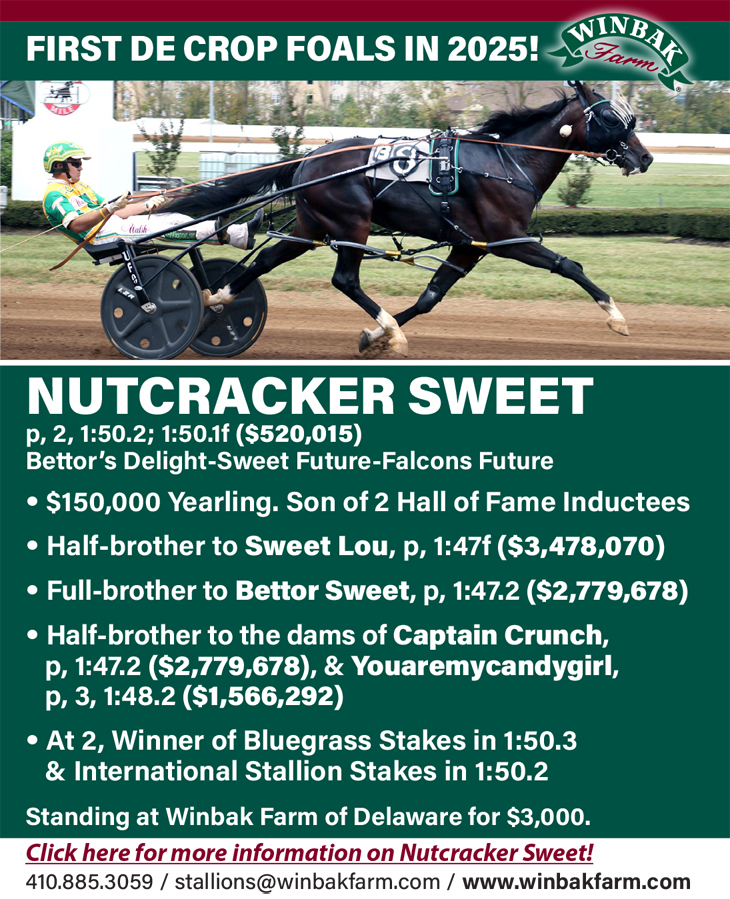
London’s online-only auction “tremendous and beyond our expectations” said Straatman
Ann Straatman, the manager of the London Selected (Virtual) Yearling Sale, was thrilled about the five-day sale that grossed over $3.3 million and averaged $32,480.
by Dave Briggs
Ann Straatman said she is relieved, more than anything, that the London Selected Yearling Sale’s online-only auction that ended Wednesday (Oct. 21) produced results that are “tremendous and beyond our expectations.” Straatman manages the sale which was rebranded this year to call itself the London Virtual Yearling Sale, for obvious reasons.
In all, 102 yearlings collectively grossed $3,312,990 for an average of $32,480 (Canadian dollars). As a comparison — which is admittedly imperfect since the 2019 auction was a traditional live auction where nearly three times the number of yearlings were sold — last year the two-day London sale grossed $6,285,000 for 291 sold, producing an average of $21,598. By that imperfect measure, this year’s online average was up more than 50 per cent over last year’s traditional sale average.
“It was more than we expected, certainly,” Straatman said of this year’s results. “This was a small sale for the London Selected Yearling Sale, just over 100 yearlings. I knew that the quality of our catalogue was the best that we’ve had and I expected the numbers to be up, but they are up more than I expected.”
The sale was held online this year due to safety concerns and restrictions during the COVID-19 pandemic. The sale’s traditional facility — the Agriplex at the Western Fair District in London, ON — is completely enclosed, limiting gathering sizes, and is currently being used as a COVID-19 field hospital.
“It was a risk, but I thought the benefits outweighed the risks, by being able to keep everyone safe and include everyone in the sales process remotely,” Straatman said of the decision to do the entire sale online rather than a hybrid model where both live and online bids are accepted.
Straatman said she was most happy for the breeders that consigned to the sale considering this is the one day a year they get paid for producing horses for market that are many years in the making.
“We have a sale once per year and that’s the one big payday (for breeders),” she said.
This year’s London sale was conducted through the ongait.com online bidding portal beginning Saturday (Oct. 17). The first of three blocks of horses went on sale at 8 a.m. that morning with bids closing approximately 52 hours later beginning at noon in 10-minute intervals for each horse on the block. Any bids that came in at the last second before a horse’s auction closed extended the bidding window an additional two minutes to allow other bidders to make counter bids.
“The ones that people were most interested in had a few more bids before the close of their auctions, but some went up very quickly right at the end and extended their auctions well beyond the time for close that we had published, so it was exciting,” Straatman said.
“Not a lot of them were bid up to higher amounts before the last minute of the sale, so it was kind of a bit of a psychological game that some of the buyers were playing, even though it was anonymous. You could only find out the winning buyer, so you don’t see all the bidders and the strategic things that they did.
As for the overall sale format, Straatman said, “it’s a huge risk when you change formats from what people are used to, but the pandemic has created obstacles and opportunities, I think, for racing and for the sales business. Most sales have opted to add the additional online bidding and still retain the online auction feel with an auctioneer. Our choice to go with a timed auction, instead of a speed auction, was calculated. Because of the time lag, different speeds of Internet… this gave everyone equal opportunity to buy and bid on horses.”
As for the technology itself, Straatman said, “It was flawless. One of the reasons we chose onGait was that it’s a proven platform and has years of experience in putting on online auctions and making them available to the public. It was absolutely seamless on our end and the communications – I have to give kudos to Maurice (Chodash) and to Eric (Cherry), who were in contact and had everything ready to go. Maurice was a wiz in putting up information, making last-minute changes. It was a really good synergistic relationship. We never met face-to-face because of the pandemic, but they were always available and made the process really easy.
“I think our communication strategy was very good, between the sale company and the consignors, but also between the sale company and the buyers. Within minutes of being the winning bidder, you had an email from onGait confirming that you were the winning bidder, then you also got an email from the sale company from your acknowledgment of purchase form, your invoice and all the details you needed to do the wire transfer for your payment or your other payment options… and also the contact information of the seller so they could make arrangements to get their horse picked up.”
Though the horses were sold showing exact U.S. dollars, the onGait site also showed amounts in Canadian dollars as converted at a fixed rate of 1.31, which Straatman said was the lowest rate from the Bank of Canada over the last month.
“We made that visible and while you were bidding you knew exactly where you were at in Canadian dollars as well,” Straatman said.
Seelster Farms, which consigned the 10 most expensive yearlings sold, topped all consignors by grossing $2,051,460 for 46 yearlings, an average of $44,597. In 2019, Seelster led all London consignors in both gross and average with $1,840,000 in gross sales for 47 yearlings sold and an average of $39,149. With almost an identical number of yearlings sold year-over-year, that means Seelster’s gross was up 11.4 per cent and its average was up 14 per cent selling its horses online this year. By average and gross, 2020’s virtual sale was the second best auction for Seelster in its 51-year history. In 2017, Seelster grossed $2,283,988 for 49 yearlings sold, producing an average of $46,612.
Four yearlings reached $100,000 or more this year.
The sale topper was hip #18 Goldrush Seelster, a son of Bettors Delight out of Glamour Seelster that fetched a winning bid of $201,740 (Cdn) from the sale’s leading buyer, Steve Heimbecker, during the first of three sale sessions.
Heimbecker also bought the second highest priced yearling sold, hip #20 Shanghai Seelster a daughter of Bettors Delight out of Soiree Seelster that fetched $151,960 out of the first session.
Hip #98 Max Shadow, a son of Shadow Play out of Lady D M consigned by Seelster Farms, topped the third and final session with a bid of $113,970 from Samuel Taylor of Lucan, ON.
Hip #62, Addison Seelster, a daughter of Bettors Delight out of Art Rock Cafe, fetched $103,490 from Heimbecker to top the second session.
Straatman, the reproduction manager for Seelster Farms of Lucan, ON, a breeding farm run by her family, said she was both pleased and relieved Seelster had such strong results selling online, especially since the biggest challenge with a virtual-only sale was the ability for people to inspect horses thoroughly before sale.
“Certainly, putting on my consignor hat now and explaining from Seelster’s position, we were very busy with people coming (to inspect horse),” Straatman said. “People think it’s less work for us to do it this way, but it certainly isn’t. Every day, seven days a week, was ‘show’ day at Seelster for two months, whereas we normally have that level of traffic just at the sale or just prior to the sale.
“For us, managing that many horses and that many people coming through was a bigger task than we anticipated. We even talked this morning about how we would change things for the future, so we’re already talking and discussing how we could make it better for next year.”
That said, one of the advantages of an online auction was the ability for people to bid anywhere in the world where there is an Internet connection.
“This auction opened our borders so wide. I had calls from Germany, from Finland and from Sweden with people looking at horses for bidding,” Straatman said. “We had quite a few buyers from the Maritimes, some of them who had never seen the horses in person. That’s going to be an interesting statistic that I want to figure – how many people bought horses sight-unseen?
“Another statistic that I want to get from onGait is the amount of page views on each horse for the total sale. I was talking to Eric (Cherry) about it and it was an astounding number, just the exposure you get being on a platform like onGait. I think it makes a huge difference to the outcome.”
This year, the London Selected Yearling Sale lost a few of its long-time partners — most notably Winbak Farms — that opted to stage a one-day live and online hybrid auction Saturday (Oct. 17) at its Ontario farm. That sale also posted strong results, all things considered (full story here).
The bottom line from both sales is the old adage that buyers will find good horses, no matter where and how they sell, and bid accordingly.
“Buyers are very smart and you can’t hide a good horse from them,” Straatman said. “They will find it no matter where it is in the sale. They are very smart. If you make it available and give them all the information, they make wise decisions. So, I give credit to those buyers that do their homework and follow-up and make inquiries and then make the final step to purchase the horse. I wish them all the very best.”
Straatman said it’s too early to say what format the London auction will take in 2021, especially since it’s too early to know what state the world will be in with regards to the pandemic.
“I want to have the opportunity to speak to the consignors and to the buyers to get some more feedback from them before we make any decisions going forward,” Straatman said. “I think a lot of us were surprised by how well it was received and you can’t deny the amount of savings in doing it this way, rather than setting up a portable facility. Although the Agriplex is a beautiful facility, it takes a lot of effort to set it up for a horse sale and everything is portable there.
“There’s certainly pros and cons for both ways of doing it. Certainly a hybrid sale is absolutely the way of the future for all sale companies, to be able to offer a way of distanced bidding as well as live and in-person bidding. All of those things are important. As far as how are we going to be when we get back to quote-unquote ‘normal’ times, I don’t know the answer to that. There’s still a risk that we may not be in possession of vaccines that will allow us to have large crowds for 2021.”
All of the major horse auctions in 2020 featured enhanced online bidding options and Straatman said that proves the Internet will play a major role in sales going forward.
“Incorporating the online portion into live auctions, I think that’s here to stay,” she said.













